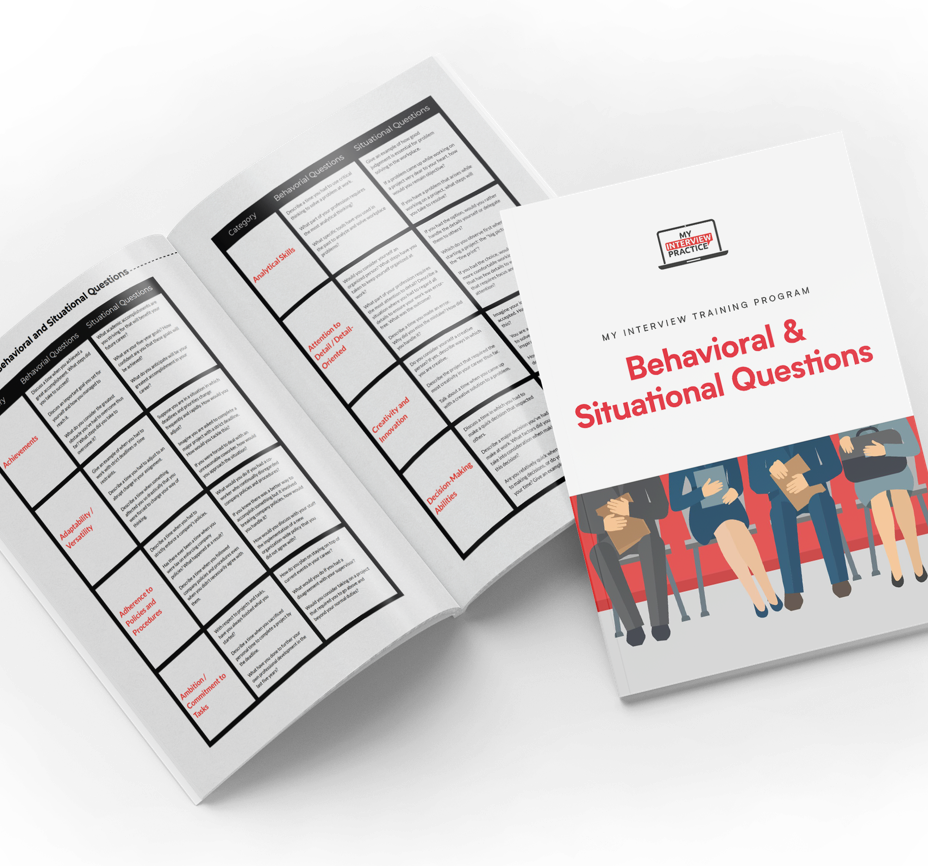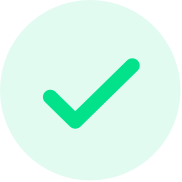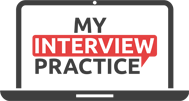How to Answer “Tell Me About Yourself” [2025 Guide]

It’s one of the most common—and most dreaded—questions in the job interview process:
“Tell me about yourself.”
For many candidates, this question brings a wave of anxiety. Should you walk through your resume? Talk about where you’re from? Mention personal interests? It seems open-ended, but how you answer can shape the entire interview.
This is often the first real moment where the hiring manager begins forming an impression. In just a few sentences, they’re assessing how you communicate, what you prioritize, and how your background connects to the role.
Handled well, your response builds momentum and sets the tone for a productive conversation. Handled poorly, it can leave the interviewer searching for relevance. In this guide, we’ll explain why this question matters, what interviewers are listening for, and how to craft a focused, confident response—complete with examples for every career stage.
Why This Interview Question Really Matters
This question helps the interviewer gauge your communication style, confidence, and understanding of the role. It’s also a chance for you to take control early and guide the conversation in a direction that plays to your strengths.
Rather than listing your work history, this is your opportunity to highlight the experience and skills that are most relevant to the position. A strong answer quickly shows that you’ve done your homework, understand the company’s needs, and are prepared to contribute.
Think of it as your opening pitch: concise, intentional, and aligned with what the employer is looking for.
What Hiring Managers Are Actually Listening For
Interviewers already know your background. After all, they’ve read your resume. What they want now is insight into how you frame your experience and how clearly you connect it to their needs.
Here’s what they’re really evaluating:
-
Do you understand what matters most in this role?
-
Can you clearly explain how your experience applies?
-
Are you confident, focused, and prepared?
-
Do you bring value that aligns with the company’s goals?
A polished response signals that you’re ready, self-aware, and serious about the role. Keep it professional. Keep it relevant. And above all, make it easy for them to see why you belong in the role.
A Simple Answer Framework For “Tell Me About Yourself”
When faced with “Tell me about yourself,” it’s easy to overthink your response or get lost in a long-winded story. The best answers are structured, concise, and focused on value. A simple and effective framework to follow is this:
Present → Past → Future
This structure keeps your answer professional, relevant, and easy to follow, while giving the hiring manager a clear sense of who you are and what you bring to the table.
Start with the Present. Begin with a quick snapshot of where you are professionally right now. Mention your current job title or role, a few key responsibilities, and a recent accomplishment that’s relevant to the position you’re interviewing for. This anchors the conversation in the most current and applicable part of your experience.
Then briefly touch on the Past. Next, provide context on how you got here. Share a highlight or two from previous roles, major achievements, or experiences that shaped your career path. Focus on those most aligned with the skills or challenges of the role you’re applying for. Mention how your past roles have helped you develop existing skills that are relevant to the new position.
End with the Future. Wrap up by talking about what you’re looking for next, and why this company or role caught your attention. Make sure to connect your goals to what the employer needs. This shows you’re not just looking for any job, you’re interested in this job for specific reasons.
This approach helps you stay focused, avoid rambling, and create a clear narrative. It’s a simple formula, but it gives you plenty of room to personalize your answer based on your experience level, background, and career goals.
And perhaps most importantly, it keeps the spotlight on what matters most to the hiring manager: how your experience translates into value for their team.
Other Key Points to Consider Including
When crafting your response to the “Tell me about yourself” question, it’s important to hit several key points that will resonate with the hiring manager:
-
Professional Background: Start by briefly mentioning your current job title, the industry you work in, and any relevant experience. This provides a snapshot of where you are in your career.
-
Relevant Skills: Highlight the skills you possess that are directly related to the job description. This shows that you have the necessary qualifications and are prepared to meet the job’s demands.
-
Career Goals: Share your career aspirations and explain how they align with the company’s goals and the role you’re applying for. This demonstrates your long-term interest and commitment.
-
Achievements: Mention specific accomplishments and successes from your past roles that showcase your value as a candidate. Quantifiable achievements are particularly impactful.
-
Education: Briefly mention your educational background and any relevant certifications. This adds to your credibility and shows that you have the foundational knowledge required for the role.
-
Personal Interests: If relevant, you can briefly mention hobbies or interests that align with the company’s culture or the job role. This can help create a more personal connection with the interviewer.
-
Why You’re a Good Fit: Conclude by explaining why you’re interested in this particular company and role, and how your skills and experience make you a strong candidate. Tailoring this part of your answer to the specific job description and company will make your response more compelling.
By including these key points, you can craft a well-rounded and engaging answer that not only highlights your qualifications but also shows that you’ve done your homework and are genuinely interested in the opportunity. Remember to keep your response concise and practice it to ensure a smooth delivery.
Examples of Strong Responses and Sample Answers
To bring the framework to life, here are a few sample answers for how candidates at different stages in their careers might approach the “Tell me about yourself” question. Each answer is concise, engaging, and aligned with the role they’re pursuing.
Example 1: Entry-Level / Recent Graduate
“I recently graduated with a degree in Computer Science and completed an internship with a local tech startup focused on developing sustainable software solutions. During my time there, I helped develop a data analysis tool and co-authored a technical report that led to the optimization of our product’s performance. I’ve always been drawn to work that combines technical skills with impactful projects, and I’m excited about this role because it offers the chance to contribute to meaningful, data-driven projects from the ground up.”
Why it works: It shows relevant education and experience, highlights a specific achievement, and connects their interest to the employer’s mission, all without sounding rehearsed.
Example 2: Mid-Level Professional
“I’m currently a marketing manager at a SaaS company, where I lead a team of four and manage digital campaigns that generate over $1.2M in annual revenue. Prior to that, I worked in brand strategy at an agency, where I developed positioning for tech startups and led several product launches. While I’ve enjoyed both the strategic and execution sides of marketing, I’m now looking for a role with more ownership and cross-functional impact—especially in a fast-growing environment like this one. Throughout my career, I have always spoken positively about my previous employer, focusing on the strengths and experiences gained.”
Why it works: It showcases leadership, quantifiable results, and a clear motivation for making a move, without dwelling on past responsibilities or getting too technical.
Example 3: Career Switcher
“My background is in academic research, where I spent six years managing complex projects and publishing findings in peer-reviewed journals. In that time, I became deeply interested in how data and communication intersect—which led me to earn a UX design certificate and begin working with small nonprofits on redesigning their websites. What excites me about this role is the opportunity to bring both research rigor and user-centered design thinking to a mission-driven product team. I also ensure to avoid sharing personal details that are not relevant to the job role.”
Why it works: It gracefully explains the candidate’s transition, ties their past skills to the new role, and shows enthusiasm for the work ahead.
Each of these responses stays within the 60–90 second sweet spot, emphasizes value over biography, and ends with a forward-looking statement. The goal isn’t to summarize everything you’ve ever done. It’s to spark interest and position yourself as someone worth talking to for the rest of the interview.
How to Personalize Your Answer
Even a well-structured answer can fall flat if it sounds generic. The strongest responses to “Tell me about yourself” are tailored to the company, role, and industry. Personalizing your answer shows that you’ve done your homework and that you understand what matters most to the organization.
Start by reviewing the job description carefully. Highlight 2–3 key qualifications or areas of focus, such as leadership, communication, or technical expertise. Then, think about how your own experiences or accomplishments directly support those needs. For example, if the role emphasizes collaboration, talk about a time you led a cross-functional project or facilitated team success.
Next, dig into the company itself. What stands out about their mission, culture, or current direction? Are they growing quickly? Expanding into a new market? Launching a new product? A short sentence about why this opportunity caught your attention can go a long way in demonstrating fit and enthusiasm.
Finally, adjust your tone depending on the organization. For a corporate interview, you may want to be a bit more formal and results-driven. In contrast, if you’re applying to a startup or creative agency, you might lean into storytelling and personality.
A strong, personalized response signals to the hiring manager that you’re not just applying everywhere—you’re applying here for a reason. And that makes your answer stand out before the conversation even gets going.
How To Answer “Tell Me About Yourself”: Final Thoughts
Crafting a strong response to common interview questions like “Tell me about yourself” is only half the equation. The other half is practicing how you deliver it, with confidence, clarity, and the right tone. This question often comes early in the interview process, and the way you answer can shape the entire conversation.
Start by drafting your response using the Present–Past–Future framework. Then rehearse it aloud, paying close attention to pacing, tone, and flow. Practicing with a friend, mentor, or career coach can help refine your delivery and highlight areas that might feel unclear or underdeveloped.
To simulate a real interview setting, consider using My Interview Practice. It offers realistic mock interview scenarios, including common questions like “Tell me about yourself.” With on-demand practice tools and instant feedback, it’s a great way to polish your delivery, reduce nerves, and build confidence before the real thing.
Recording yourself—either through the platform or on your own—can also help you identify patterns in your speaking style, areas where you might ramble, or moments where your message doesn’t quite land. Aim to sound natural and conversational, not memorized.
Lastly, double-check that your answer aligns with your resume and LinkedIn profile. A consistent narrative reinforces your credibility and helps the hiring manager see a clear, professional story from the start.
With a few focused practice sessions, you’ll be ready to deliver your answer with the kind of composure that leaves a lasting impression.
The key to nailing your interview – practice, practice, practice.
As with anything, practice makes perfect. The most common ways to practice are with in-person mock interviews or a list of questions. While these options are a great place to start, they can leave a lot to be desired.
Practicing with In-Person Mock Interviews and Question Lists
One way to get valuable interview practice is to set up in-person mock interviews. Unfortunately, they can be somewhat inconvenient. You have to find someone to conduct the mock interview, and schedule a meeting every time you want to practice.
Question lists offer a much more convenient way to practice interviewing. Unfortunately, they do little to recreate actual interview pressure. In a real interview you’ll never know what’s going to be asked and this is exactly what can make interviews so stressful.
Interview Simulators – The best of both worlds.
With interview simulators, you can take realistic mock interviews on your own, from anywhere.
My Interview Practice offers a dynamic simulator that generates unique questions every time you practice, ensuring you're always prepared for the unexpected. Our AI-powered system can create tailored interviews for any job title or position. Simply upload your resume and a job description, and you'll receive custom-curated questions relevant to your specific role and industry. Each question is crafted based on real-world professional insights, providing an authentic interview experience. Practice as many times as you need to build your confidence and ace your next interview.
| List of Questions |
In-Person Mock Interview |
My Interview Practice Simulator |
|
|---|---|---|---|
| Questions Unknown Like Real Interviews | |||
| Curated Questions Chosen Just for You | |||
| No Research Required | |||
| Share Your Practice Interview | |||
| Do It Yourself | |||
| Go At Your Own Pace | |||
| Approachable |
Our interview simulator uses video to record your responses, and recreates the pressure you would feel in a real interview. This also allows your to see how you perform and perfect your responses. You can then share your responses with colleagues and mentors so that you can get valuable feedback.
Get the free training guide.
See the most common questions in every category assessed by employers and be ready for anything.
Get the Guide




